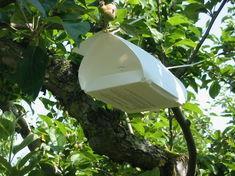
Pest management specialist Exosect has attracted further funding from its investors Oxford Capital Partners, WHEB Ventures and the Entrepreneurs Fund.
This brings Exosect’s investment funds in the last two years to £5 million and reflects a period of commercial growth which follows seven years of intensive research and trial programmes in over 25 countries.
The new investment funds will be used to develop and expand Exosect’s agricultural and professional business opportunities in Europe, India and the Far East.
Martin Brown, managing director of Exosect, said: “This further investment in Exosect demonstrates the ongoing commitment of our existing shareholders. Importantly, it reflects the recognition by the investment community of the market potential of new environmentally conscious and sustainable approaches to pest control.”
Exosect’s pest management solutions have already been commercialised in a number of territories including the UK, US, Greece, South Africa, New Zealand and Belgium with further EU approvals expected this year. Exosect’s exciting new second-generation product is due for launch in India this summer.
The active mating product Exosex CM has recently received registration in Italy where it will be used to tackle codling moth issues.
Dr Edith Ladurner, senior scientist with Intrachem Bio Italia who has been working with the system in Italy since 2005, said: “Exosex CM gives the grower an innovative and green choice to be used in IPM systems. This system will specifically address the requirement of Italian growers to supply produce suitable for export to markets that has a zero tolerance for insect infestation, at the same time as meeting growing demand for reduced residues in our traditional EU markets.
“In Italy, auto-confusion techniques, such as Exosex CM are unique in the mating disruption market and will be the future of codling moth control in both organic and IPM orchards.”
Exosect’s patented Entostat powder technology when used as part of an Integrated Pest Management programme, assists growers achieve minimum residues in their crops and produce high quality food for the consumer. The products are used globally in a wide range of sectors including crop protection, apiculture, professional pest control and public health.



